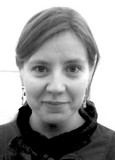Characteristics of physical rehabilitation for stroke survivors, evaluated through the lens of their psychological and emotional well-being
Ключевые слова:
rehabilitation after stroke, therapeutic exercise, psycho-emotional state, motivation for recovery, elderly peopleАннотация
Objective of the study was to assess the correlation between the indicators of the psychological and emotional state of patients following a stroke and their motivation to participate in physical therapy during the rehabilitation process.
Methods and structure of the study. The psychological assessment was performed using the Hospital Anxiety and Depression Scale, the Integrative Anxiety Test, the Asthenia Assessment Scale, the Compliance Scale, and the Short Neuropsychological Examination of the Cognitive Sphere. The study involved 35 participants aged between 60 and 80. The study was conducted at the Clinical Hospital No. 2 in Novosibirsk.
Results and conclusions. The findings of the research revealed a strong correlation between depression and a decrease in physical activity, as well as between the level of adherence to treatment and the performance of physical exercises for fine motor skills and memory. The data obtained indicate that the creation of rehabilitation programs for elderly patients with these characteristics should encompass not only conventional measures aimed at restoring motor and cognitive abilities, but also enhancing motivation and the significance of the rehabilitation process itself. This can be achieved through the use of innovative engineering solutions in the organization of physical therapy in healthcare and rehabilitation facilities, as well as through providing competent social and psychological support during treatment and rehabilitation.
Библиографические ссылки
Lukina Yu.V., Martsevich S.Yu., Kutishenko N.P. Shkala Moriski-Grina: plyusy i minusy universalnogo testa, rabota nad oshibkami. Ratsionalnaya Farmakoterapiya v Kardiologii. 2016. No. 12 (1). pp. 63-65.
Postkovidnaya asteniya. Algoritmy diagnostiki i lecheniya. Terapiya, publ. 2022. No. 8. pp. 90-100.
Suvorova T.N., Gribova N.P. Dinamika kognitivnykh i psikhoemotsionalnykh narusheniy v rannem vosstanovitelnom periode ishemicheskogo insulta pri provedenii reabilitatsionnykh meropriyatiy s primeneniyem stabilotreninga. Chelovek i yego zdorovye. 2023. No. 26 (3). pp. 29-35.
Tonkonogiy I.M. Kratkoye neyropsikhologicheskoye obsledovaniye kognitivnoy sfery (KNOKS). Moscow: Per Se publ., 2010. 69 p.
Kayes N.M., Cummins C., McPherson K.M., Worrall L., Bright F.A. S. Developing connections for engagement in stroke rehabilitation. Brain Impairment. 2022. No. 23(1). pp. 42-59.
Kitchen N.M., Dexheimer B., Yuk J., Maenza C., Ruelos P.R., Kim T., Sainburg R.L. The complementary dominance hypothesis: a model for remediating the ‘good’ hand in stroke survivors. Journal of Physiology. 2024.
Oliveira J., Gamito P., Lopes B., Silva A.R., Galhordas J., Pereira E., Fantasia A. Computerized cognitive training using virtual reality on everyday life activities for patients recovering from stroke. Disability and Rehabilitation: Assistive Technology. 2020. No. 17 (3). pp. 298-303.

Дополнительные файлы
Опубликован
Как цитировать
Выпуск
Раздел
Лицензия
Copyright (c) 2025 Theory and Practice of Physical Culture

Это произведение доступно по лицензии Creative Commons «Attribution» («Атрибуция») 4.0 Всемирная.
